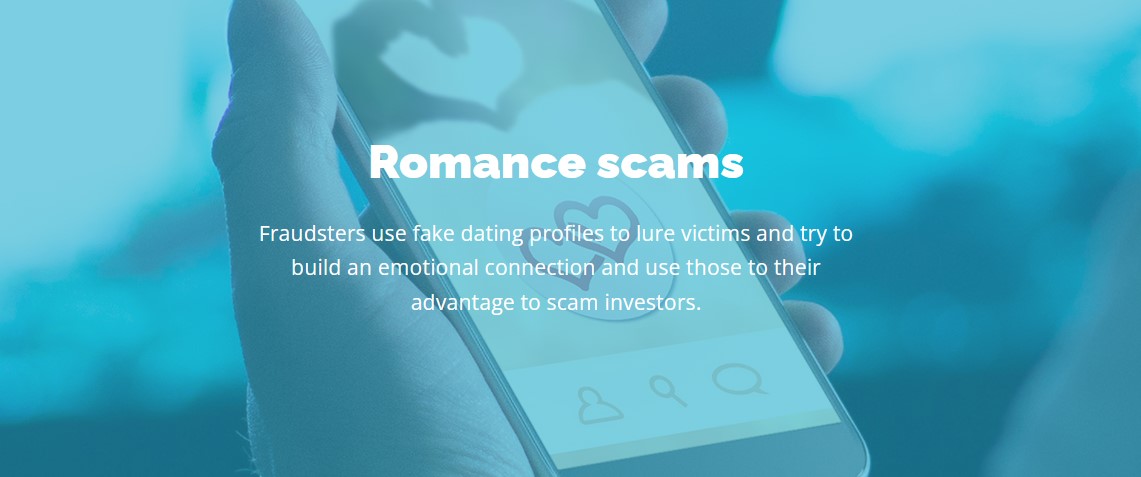Romance Scams

The internet has made it easier for people to connect, share interests and develop relationships. Social media, online classifieds, and dating websites and apps have helped many Canadians meet new people.
While online dating can lead to successful relationships, fraudsters also use online dating platforms to target potential victims.
If you meet someone online but have not seen them in-person, and they begin to ask you for money, it’s likely a scam.
Fraudsters play on your emotions. They may claim to share the same interests as you. They will often ask for your email or phone number, so they can contact you regularly. When they have gained your trust, they’ll begin to ask for money and claim that they’ll pay you back. Common reasons include an investment opportunity, a real estate purchase, a business transaction, or a personal emergency like medical or legal expenses.
Signs of a Romance Scam
1. The person claims feelings of attraction towards you, but you’ve never met them in-person.
Fraudsters hope that you’ll be blinded by expressions of emotional attraction and let your guard down.
2. The person asks for money.
Fraudsters will give many reasons why they need money ranging from emergencies to a good investment opportunity. Remember that generally, any person trying to sell you an investment product or give you investment advice must be registered.
3. The person lives or is working in another country.
Fraudsters often claim they are in another part of the world as the reason for not being able to meet in-person. This may make information harder to verify, like an investment opportunity, so do not let your guard down.
4. The person always has an excuse why they can’t meet you.
The fraudster may claim to be making plans to see you soon, but they’ll always make an excuse not to travel. This also gives them another opportunity to ask you for travel money or other expenses, like a visa application.
5. The person’s photo looks perfect.
Fraudsters are unlikely to provide photos of themselves. They will often steal photos from magazines, advertisements or social media accounts to pretend to be someone they are not.
How you can protect yourself
1. Slow down.
Don’t send money or invest with someone you just met online and have never seen before in-person.
2. Talk to a trusted friend or family member for their opinion.
You could get caught up in the excitement of meeting someone new. A friend or family member can give you valuable, objective feedback.
3. Ask them for a recent photo or do a video call.
If the person is real, they should be open to sharing their real photo with you or by video call.
4. Look for inconsistencies.
For example, their email address contains someone else’s name, or what they’ve told you doesn’t match their dating profile or social media account information.
5. Research.
Use search engines to check if the messages or images that they gave you are found scam websites or stolen from another source.
Need help deciphering a situation?
Check out the Scam Spotter Tool
-
Date
Dec 14, 2022
-
By
Ontario Securities Commission
Newsletter
Sign up for the Healthy Aging CORE BC e-news to keep up-to-date with activity from the platform and the Community-Based Seniors Services (CBSS) sector across the country.
